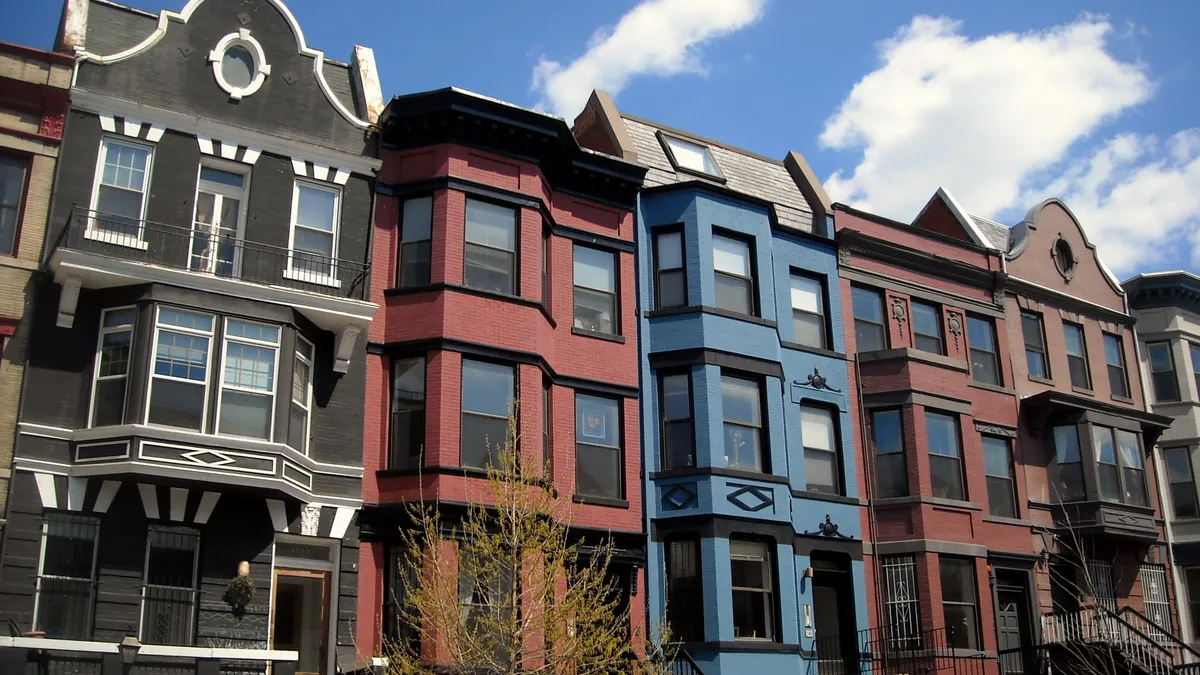Dive Brief:
-
The total value of the U.S. housing market has hit $23.9 trillion, its highest level since the mid-2000s, while household debt has remained largely flat and household equity has increased after dropping off during the recession, according to a monthly report from the Urban Institute’s Housing Finance Policy Center.
-
Citing the Federal Reserve's Flow of Funds report, the institute notes that the total includes a rise in total debt and mortgages to $10.2 trillion in the third quarter, while equity jumped up to $13.7 trillion for the period.
- The report suggests that the recent rise in mortgage interest rates — from 3.54% before the election to 4.16% by mid-December — could “dramatically” cut refinancing activity, reduce trade-ups and, as a result, lead to mortgage-backed securities being treated as longer duration instruments, something that could raise rates further.
Dive Insight:
In its report, the Urban Institute notes that the 2016 presidential election’s biggest impact on the mortgage market has so far been through a spike in mortgage interest rates, albeit from historically low levels. Industry observers have been counting on those low rates to encourage more younger, first-time buyers to consider purchasing a home.
Meanwhile, home prices are expected to continue rising next year, albeit at a slower pace, with CoreLogic forecasting a 4.6% jump from October 2016 to October 2017, down from a 5.2% year-over-year gain forecast in September.
And inventory remains tight. A report last week by real estate website Trulia showed that the final quarter of this year saw the biggest decrease in three years in homes for sale targeting the nation’s average first-time buyers, down 12.1% on the year-ago period.
Still, builders are optimistic that the pent-up demand keeping inventory limited and prices tight will result in more work for them in the coming months, according to the latest National Association of Home Builders/Wells Fargo Housing Market Index, which reached its highest level since July 2005.
Despite the bullish forecasts, a move last week by the Federal Reserve to push interest rates up to a range of 0.50% to 0.75% from 0.25% to 0.50% could dampen the mortgage market as it will make it more expensive for consumers to borrow.
Government-backed lender Freddie Mac warned this week that activity in the mortgage market could be subdued next year if rates continue to rise. Its 30-year fixed-rate mortgage averaged 4.16% for the week ending December 15 compared to 4.13% the week before and 3.97% a year ago.
For more housing news, sign up for our daily residential construction newsletter.












